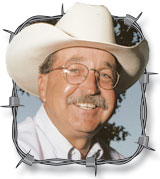For many years, those of us involved in farming and ranching have been very concerned about the so-called ‘urban encroachment’ into agricultural communities. Farmers who live in close proximity to large population centers are the most threatened, but those of us who reside in historically rural areas are not immune to the phenomenon, as more and more people escape the city in search of that slice of idyllic life they think we have.
Just last week, I visited with a lady who had grown up on a dairy farm in Wisconsin and lived there her entire life before retiring to a small town here in the Ozarks. She related the following story as an illustration to the conflicts that can arise as a new population enters the countryside.
A middle-aged couple had spent every weekend, for years, searching for a perfect place in the country to build their dream home. They both agreed that they had finally found their Eden, nestled in the middle of Wisconsin dairy country where classic old farmhouses and milk barns, complete with silos and painted fences, were spaced out every couple of miles. Even though the location would require about two hours of drive-time each day for the husband to retain his high-paying job in the city, he was willing to make that sacrifice to escape the congestion, crime and cost of living they had endured until their children were raised. The only problem was – the little corner of heaven they had located – did not have a ‘For Sale’ sign.
Convinced that this was the only place for them to build a home, they cautiously approached the landowner, who lived one mile down the narrow, paved road. They introduced themselves and asked him if he would be interested in selling off a few acres in a wooded area on the corner of his property. The middle-aged dairy farmer was cordial, but uninterested in parting with even a few acres of his beloved farm. But, when the city couple offered him close to five times what the land was worth, he decided that he could probably get along without those 10 acres and use the windfall to pay down a good portion of his debt load. Before he agreed to their offer, however, he wanted to have a very serious talk with the soon-to-be neighbors.
Over the kitchen table, the farmer explained that he and all his neighbors were dairymen and that they had all been dairymen for several generations. He proceeded to educate the newcomers by telling them that there would, oftentimes, be odors that they were not used to smelling; that during crop, hay and silage harvesting, there would be noises that they weren’t used to hearing; these noises could go on through most of the night and that with great frequency, they would find their road slowed to traffic as the entire width would be blocked by large and slow-moving tractors and implements. “We were here first,” he cautioned, “and I just want assurances from the both of you that complaints, whining and lawsuits concerning those things won’t be tolerated in this community.”
The nice city couple assured him that, not only would they never complain, but those were many of the charming attributes that made them want to live there. The deal was done.
Two years passed. The newcomers built an elegant home, complete with tens of thousands of dollars spent on lavish landscaping, and they fit in as nicely as any non-farmers could amongst a community of farmers. However, a problem arose. The abundant wildlife, which the non-farmers had at first, cherished, were now demolishing their shrubs, ornamentals and fruit trees.
At wits end, the lady of the new home approached the farmer. “I know I said I’d never complain,” she apologetically stated, “but is there any way I could ask you to please move the ‘DEER CROSSING’ sign a little farther down the road? The deer are eating up every sprig and shrub I’ve planted.”
Incredulous, the farmer paused and faked a cough, “I’m sorry ma’am, but that sign was put up by the State Highway Department. You’ll have to talk to them to get it moved.”






